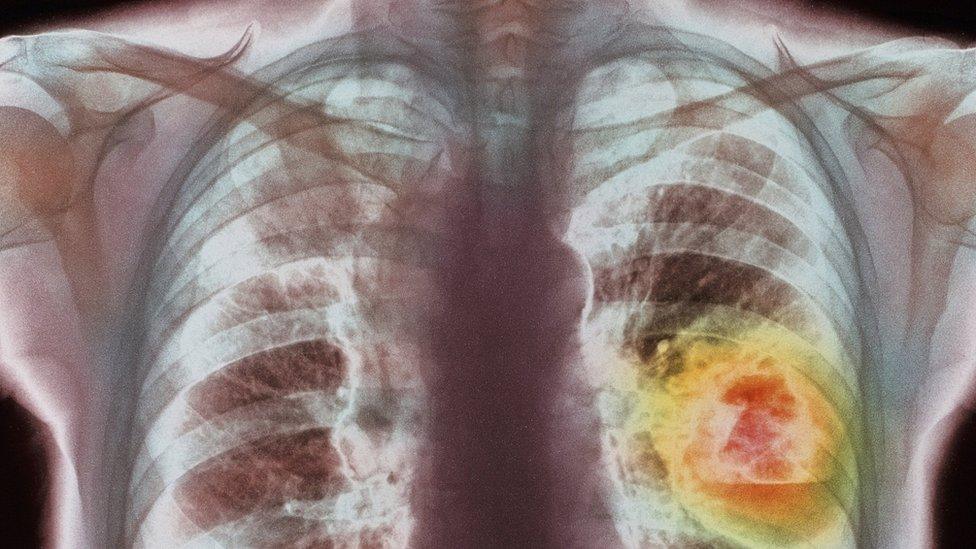Trial of drugs combination to treat lung and pancreatic cancers
- Published

Immunotherapy is used to help people with 'hard-to-beat' conditions like lung cancer
A new combination of drugs to treat lung and pancreatic cancers is to be trialled in Scotland.
The treatment involves combining immunotherapy drug pembrolizumab with a second drug which blocks the protein Focal Adhesion Kinase (FAK).
Previous studies found FAK is often overproduced in tumours and enables cancer cells to repel medication.
The trial involving about 60 patients will be managed by the Cancer Research UK clinical trials unit in Glasgow.
It forms part of a new collaboration between Cancer Research UK and drugs companies MSD and Verastem, and will be co-led by scientists in Edinburgh.
Dr Stefan Symeonides, from the University of Edinburgh, said: "Immunotherapy is a very exciting area of cancer research and we've seen remarkable benefits from pembrolizumab for some patients with hard-to-treat cancers, like melanoma and lung cancer.
"We're hoping that the addition of defactinib will extend those benefits to more patients.
"This work could one day give a new treatment option that saves lives for this group of patients who have few options."
'Saving more lives'
The charity hopes a successful trial will lead to further collaboration between medical companies to improve treatment.
Dr Ian Walker, director of clinical research at Cancer Research UK, said: "It's vital that we find new treatments for these cancers which take tens of thousands of lives each year in the UK, and we're delighted to be working with MSD and Verastem on this.
"Our Combinations Alliance was set up to help develop partnerships between drug development companies and researchers to try new combinations of drugs in the hope of improving treatments and saving more lives from cancer.
"This is our first success in bringing together two organisations and we hope that this combination of immunotherapy drugs will benefit patients."